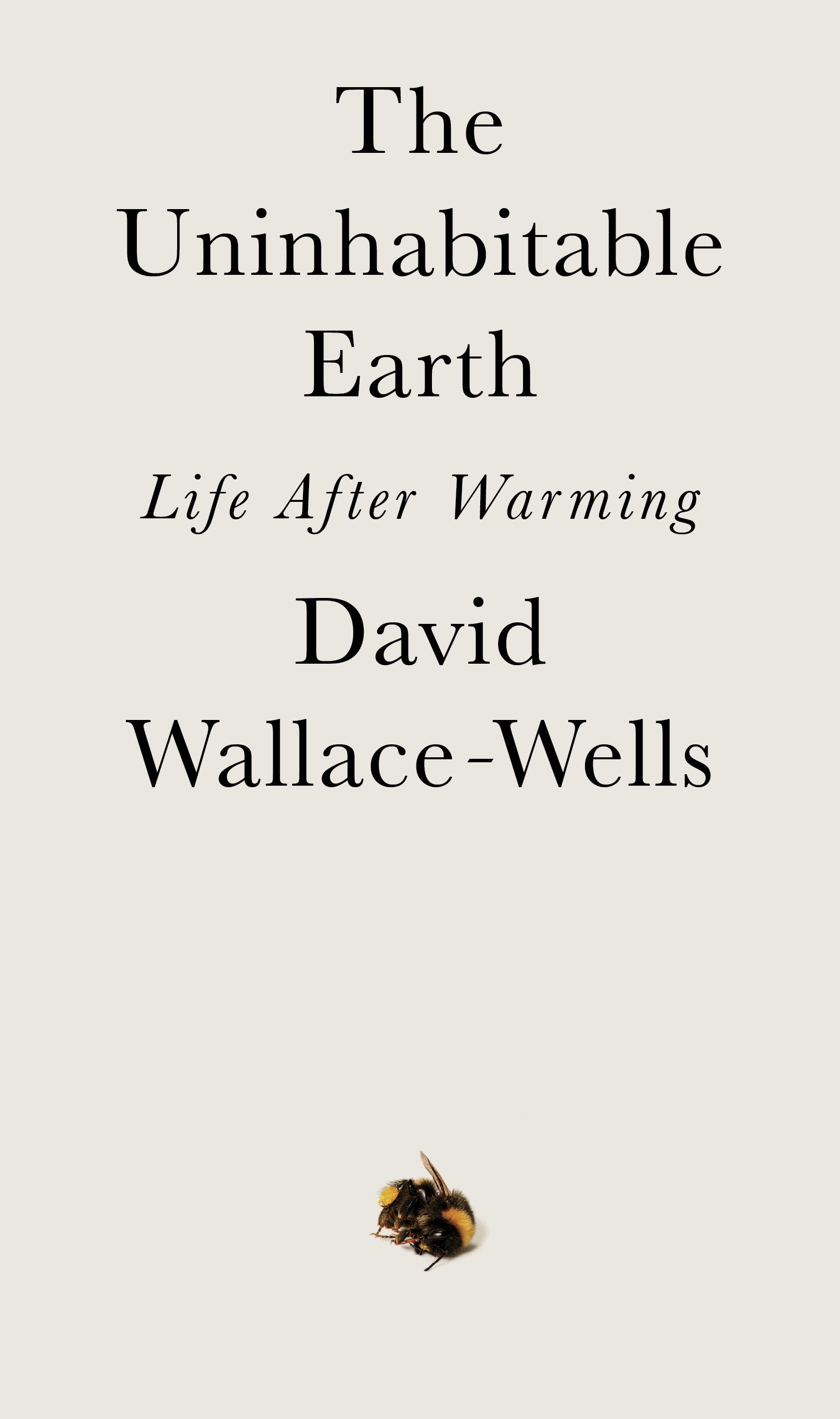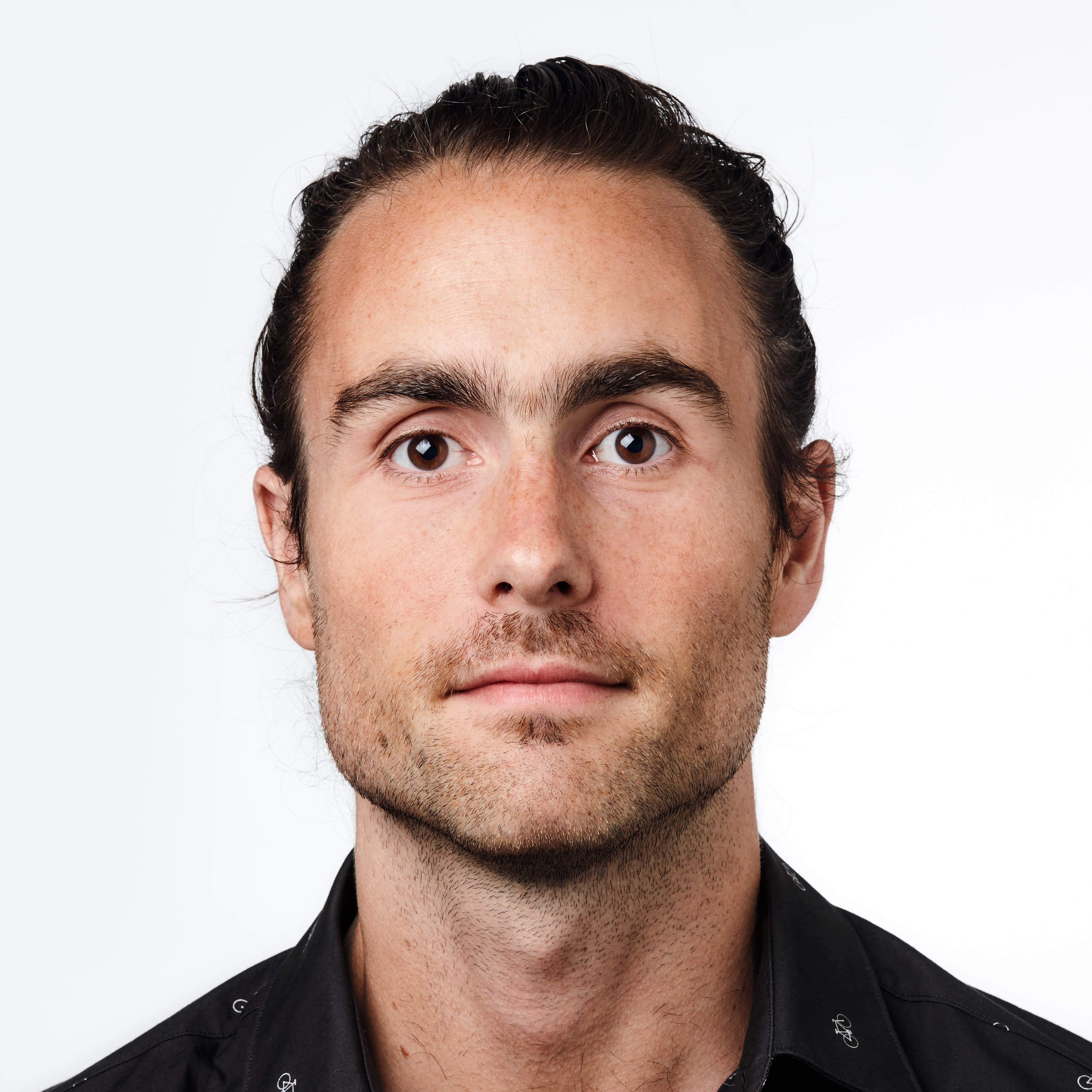Though climate change is by now an inevitability—indeed, it is already well underway—observers who warn of its bleak consequences are often called “alarmists.” David Wallace-Wells has certainly been branded with the epithet: After his 2017 New York magazine cover story about the likely outcomes of global warming, even scientists criticized him for being “irresponsible” and “overly bleak” in his reporting. The fear among these scientists is that describing the apocalyptic scenarios that await us will drive people into despondency, rather than spurring them toward positive action.
It’s true that The Uninhabitable Earth: Life After Warming—Wallace-Wells’ new book, which reports on what life will look like under two to four degrees Celsius of warming—is a difficult, sometimes terrifying read. But that doesn’t mean that general readers should avoid the book. In fact, Wallace-Wells argues that fear is necessary as a motivator—because with a crisis this serious, every sort of motivator is necessary. As Wallace-Wells tells Pacific Standard, he takes a “let all flowers bloom approach.” Fear may drive some readers away, but it could also inspire others to take action.
For Wallace-Wells, at least, fear of climate change has proven productive. And despite having studied more deeply than most all the ways that we will be tormented by climate change, Wallace-Wells is obstinately hopeful. As he puts it: “We should stop relating to climate change as though it’s this hellish crucible.”
Wallace-Wells spoke with Pacific Standard about how can we get past that hellishness into hope—and how he got to hope himself.

At the start of the book, you clarify that you’re not an environmentalist. How, then, would you describe yourself?
My faith has really been shaken over the last few years. Beginning, like a lot of people, with 2008, but especially beginning in 2016—that’s really when I began focusing quite intently on research about climate science, and seeing that the picture was much darker, much bleaker, and much scarier than I felt I had been led to believe by the storytelling I’ve seen about climate change in most of our newspapers and on television.
As a journalist, there’s a storytelling opportunity there. I felt that this was not just worse than we all thought, but actually much bigger and more total, and the impacts would be felt in many more ways, in much more complex ways than I think most engaged liberals understood. And in the process of writing about it in different ways over the last few years, I have felt myself pulled into a perspective that’s at least quasi-advocate, quasi activist-y. But I still feel fundamentally like what I’m doing is journalism. And so my main obligations are to tell the truth and to tell a story.

(Photo: Tim Duggan Books)
I hope that I honor both of those obligations in the book, which I take to be ultimately about climate change not just as a harrowing, terrifying force in our lives, but [as] something that will come to shape and transform everything about the modern world in the coming century. So it’s like a narrative as big as modernity or as big as financial capitalism; it will be everywhere you look in the decades ahead, and we haven’t yet really begun to think about what that will mean for us. My book is an effort to do that.
Where that leaves me—I’m in a kind of a strange in-between state now. I’ve written a book. I feel like I wrote that book as a journalist; I feel myself primarily to be a journalist, but the story is so big, the stakes are so high, and time is so short. At the moment I’m just focused on trying to tell the story as I see it to as many people as I can.
It can often feel as though environmental writers have a different responsibility from other kinds of reporters.
I think you’re right that many, many environmental writers do feel that dual obligation. And it’s hard to avoid. In writing the book, I thought a lot about the example of Ta-Nehisi Coates, and he often says: “I’m just a journalist, I’m just telling the story as I see it. Don’t look to me for answers. Don’t ask me to make you feel a certain way.” My main obligation is to the facts and the story as I see it, and I think on some level that’s still the basic anchor of my worldview and my basic orientation toward climate change. But, as you say, it’s impossible not to feel pulled in a few different directions when you work on this. It’s just too important not to be.
How do you respond to people who explicitly say they wouldn’t trust you as an environmental writer because you’re not an environmentalist?
I think the story is too big to accommodate just one approach, just one model, just one kind of story, just one kind of storyteller. My own inclination as a reader of writing about climate is that, the more diversity of voices, the more diversity of stories, the better off we’ll be. The more diversity of approaches in messaging [and] storytelling, the better off we’ll be.
Personally, I think it’s a little bit of a mistake to ask of any writer that they conform to any particular model or approach. I think in general, people should write the stories as they see them. In my case, that’s the story that is maybe more animated by alarm, and also more concerned with some of these questions about the humanities of climate change, rather than the science: how it’ll affect our storytelling and pop culture and politics and geopolitics and that kind of thing. But I certainly wouldn’t say that my model is the only model, and I don’t want to say to somebody who only wants to read activists that they should read me.
You say in the book that part of the challenge with climate change is our psychological failings, our human tendency to trap ourselves in losing situations. How do we get ourselves out of that? Is the answer fear? Is it hope? Or is part of it, as you write, a process of recognizing our “cosmic specialness” as a species?
For me personally, the thing that I keep reminding myself—well, there are two big things. The first is the scale of the suffering that we are scheduled to see if we do not change course is also a sign of just how much power we have over the climate system. And as horrifying and even paralyzing as it can be, to contemplate what a world would look like, at, say, four degrees with hundreds of millions of climate refugees and places in the world getting pummeled by six natural disasters at once, with a global [gross domestic product] that’s possibly 30 percent smaller than it than it would be without climate change.

(Photo: Courtesy of David Wallace-Wells)
As horrifying as those scenarios are, they are also just a mark of what we can do from here until the year 2100. If we get to that place, it will be because of what we do from here until the end of the century, not because of what we’ve done in the past. And so really, everything about our climate future is entirely within our control. I think that can be an empowering message, even as we understand that there are all these obstacles to action, that our politics is too inert and too slow-moving, that we have all these status quo biases and are reluctant to take radical action of the kind that’s necessary. Even so, it’s possible. The tools are there. We could do it if we decided to, collectively. And so the problem is, how do we make that decision? How do we make that commitment?
Relatedly, the second thing I keep telling myself to pull myself out of moments of despair is that nothing is written in stone, that we are not facing this catastrophe because it’s inevitable, it’s not something that we must endure and we have no control over. There’s nothing about the future of the climate that is beyond maybe a couple of percentage points of a degree that are already baked in. We should stop relating to climate change as though it’s this hellish crucible, which we are just going to pass through and have to suffer through. It is a system that is dynamic; the main input is how much carbon humans put in the atmosphere. And that means that at any point, no matter how bad it gets, it will still be up to us to determine the next decade, the amount of warming in the decade after that, and we will always be empowered in that way. Even as we feel possibly quite pummeled by some of the more harrowing possible impacts, we’ll still be empowered to take action.
You’ve done a more thorough review of the science than most people, and the outcomes you report are bleak. What’s the case for optimism?
For me, it’s really a matter of perspective. I think it’s important to understand that when the lay reader asks me, Is there a reason for hope?—functionally, what they’re asking is: Is it possible that the climate won’t get any worse? And I don’t think that that’s possible. Things are going to get considerably worse over the next couple of decades, even if we take the most aggressive action. My perspective is not really anchored by the climate as it exists today; it’s anchored on the one end by two degrees [Celsius of warming], which I consider about the best possible outcome, and on the other end by about four degrees, which is what the [Intergovernmental Panel on Climate Change] says we’re heading for at the end of the century. Within that range, I think a quite-optimistic outcome is not just possible, but perhaps even likely.
We could manage to stay at 2.5 degrees or something and stabilize the climate there. On some level, that’s an optimistic outcome. On the other hand, looking at it from the vantage of today, we would be horrified by what that would mean for the world. And certainly looking at it from the vantage of say, 1950, we will be horrified, truly horrified, by what that would mean for the world. And I think that’s one reason why it’s important to take seriously the science, so that we’re not constantly anchoring our own expectations in an unrealistic possible outcome. But it’s all a matter of perspective. And I think most people don’t have the proper perspective because most people are too focused on the way the world is right now, which is an unsustainable system.

Pacific Standard’s Ideas section is your destination for idea-driven features, voracious culture coverage, sharp opinion, and enlightening conversation. Help us shape our ongoing coverage by responding to a short reader survey.





